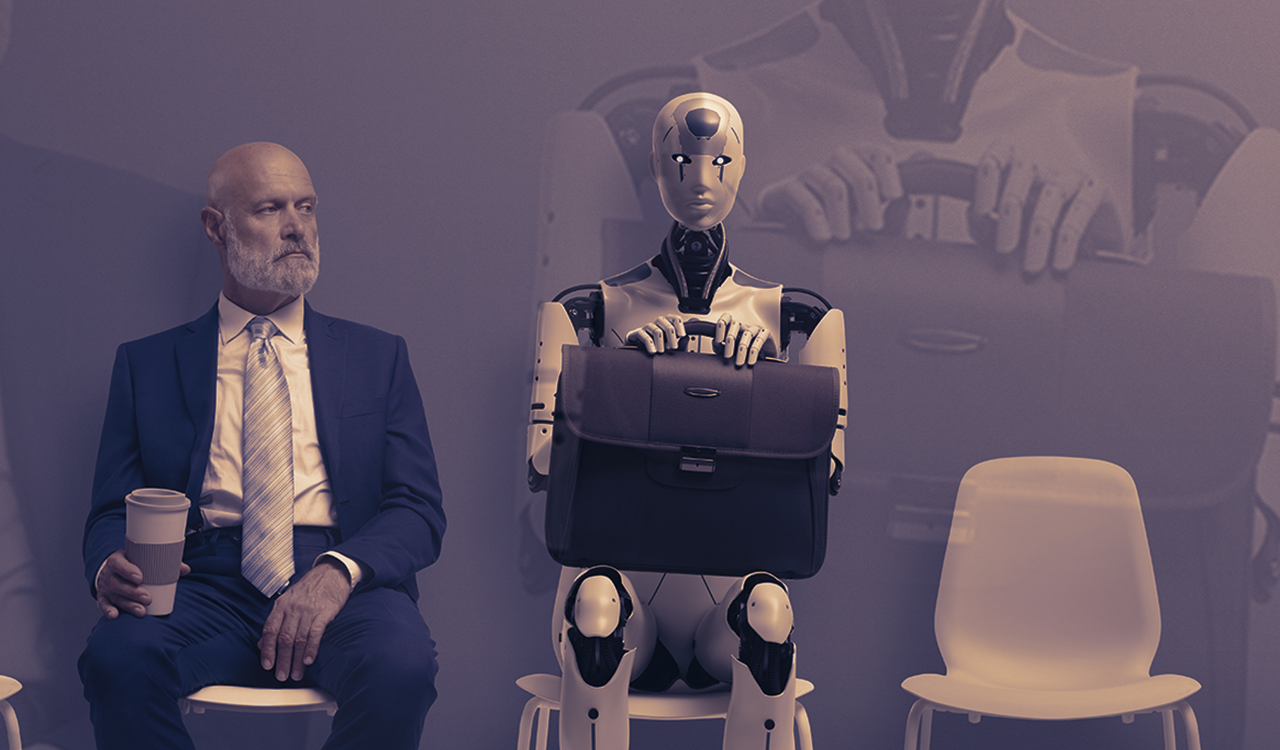
The penetration of AI (artificial intelligence)-driven tools is creating anxiety among Greek employees with nearly four in five fearing they will lose their jobs by 2023 as a result.
This data was released by the European Center for the Development of Vocational Training (Cedefop) as part of an AI Skills Survey carried out from February to May on 5,342 employees aged 16 to 64 in 11 EU states (namely Belgium, Czech Republic, France, Germany, Greece, Ireland, Luxembourg, Poland, Portugal, Slovakia, and Spain).
Despite the limited penetration of AI tools in Greece, 24% of those surveyed said they feared they would be made redundant by 2030 due to AI compared to 15% in the EU.
The main reason cited by Greek participants was lack of familiarity with AI technologies.
Indicatively, 21% of employees in Greece said they use AI at work compared to the average of 28% in other EU states.
Growing Fears in Greece That AI Will Replace Jobs
Other key takeaways of the study include:
-50% of Greeks believe that it is quite or highly unlikely that companies in Greece will use AI technologies in favor of employees
-42% said it was quite or highly unlikely that companies will offer AI training and upskilling opportunities for employees
-62% believe it is quite or highly unlikely companies will involve employees in decisions concerning AI use
-42% said they feel it is likely or highly likely that their employer will replace them with AI technologies
-66% of Greeks (and 61% of Europeans) said it was quite or very likely that they would need to gain new skills and experience to deal with the impact of AI on their work in the next five years.
Speaking to ANA-MPA, CEDEFOP Skills and Labor Markets Expert Konstantinos Pouliakas said that one in two Greeks (51%) said they lack of AI skills.
According to the same study, one in seven workers in the 11 countries under review use automated tools or applications; two in 10 believe AI can perform more than half of their tasks; 30% using AI said their job responsibilities were reduced; 41% said they had to take on new responsibilities; and 68% said AI technologies allowed them to perform tasks faster.
Source: tovima.com
Latest News

EU Condemns Trump Tariffs, Prepares to Retaliate
As tensions escalate, the EU is expected to continue negotiations with Washington while preparing for potential economic retaliation.

The Likely Impact of Trump Tariffs on Europe and Greece
Trump tariffs are expected to negatively affect economic growth in the Eurozone while Greece's exports could take a hit.

Motor Oil Results for 2024: Adjusted EBITDA of 995 mln€; Proposed Dividend of 1.4€ Per Share
Adjusted EBITDA for 2024 was down 33% yoy. The adjusted profit after tax for 2024 stood at 504 million euros, a 43% decrease from the previous year

Cost of Living: Why Greece’s 3% Inflation Is Raising Alarm
Greece appears to be in a more difficult position when it comes to price hikes, just as we enter the era of Trump’s tariffs.

Fitch Ratings Upgrades the Four Greek Systemic Banks
NBG’s upgrade reflects the bank’s ongoing improvements in its credit profile, Fitch notes in its report, including strong profitability, a reduction in non-performing exposures (NPEs), and lower credit losses

Trump to Announce Sweeping New Tariffs Wednesday, Global Retaliation Expected
With Trump's announcement just hours away, markets, businesses, and foreign governments are bracing for the fallout of one of the most aggressive shifts in U.S. trade policy in decades.

Inflation in Greece at 3.1% in March, Eurostat Reports
Average inflation in the eurozone settled at 2.2%, compared to 2.3% in February

Greece’s Unemployment Rate Drops to 8.6% in February
Despite the overall decline, unemployment remains higher among women and young people.

Jerry Kalogiratos Highlights Key Role of Energy Transition and Data Demand in LNG Outlook
Energy transition and the prospects of LNG were discussed at Capital Link’s 19th Annual International Maritime Forum, during a panel discussion with Jerry Kalogiratos (Capital Clean Energy Carriers Corp.)

Santorini Safe and Ready for a Dynamic Tourism Season
Authenticity, cultural heritage, and genuine experiences at the center of Santorini's new promotional campaign
























![ΕΛΣΤΑΤ: Αυξήθηκε η οικοδομική δραστηριότητα κατά 15,6% το Δεκέμβριο [πίνακες]](https://www.ot.gr/wp-content/uploads/2025/03/DSC9655-2-1024x569-1-90x90.jpg)

















 Αριθμός Πιστοποίησης
Αριθμός Πιστοποίησης